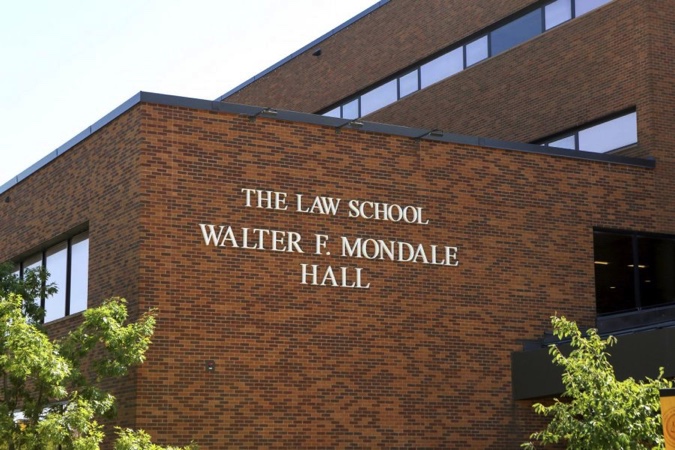A new clinic at the University of Minnesota Law School called the Racial Justice Clinic is set to begin next fall.
The clinic will be led by new Associate Clinical Professor of Law Liliana Zaragoza. The clinic will be year-long, and students will have the opportunity to work with real clients on racial justice issues. Clients will receive the legal assistance free of charge, Zaragoza said.
The clinic will be open to second-and third-year law students and, to be part of the clinic, students will apply and enter into a drawing, Zaragoza said.
Zaragoza said she proposed the idea of starting a racial justice clinic when the law school was hiring for a new clinical professor.
“My life’s work is doing racial justice work,” Zaragoza said. “I wanted to help bring resources to be able to continue to combat racial oppression.”
Zaragoza worked for the NAACP Legal Defense and Educational Defense Fund, Inc. for the past three and a half years before coming to the University. She graduated from Columbia Law School in 2013.
Steve Meili is an associate law professor and will be the director of all clinics at the University Law School starting July. He said that he was appointed chair of the search committee when the law school began their search for a new clinic.
Meili said the committee was not looking for a specific clinic, but many who applied were interested in issues of racial justice. He said that there are currently 24 clinics at the law school and many indirectly deal with racial justice, but this will be the first clinic that solely focuses on racial justice issues.
“Given the murder of George Floyd and others, both before and after him,” Meili said. “The time is right for the law school to provide an opportunity for our students to work on these kinds of issues in a very direct manner.”
Meili said the clients, students and law school community will benefit from this new clinic.
“They will get to engage with issues of racial equity and racial justice in a very direct and concrete way,” Meili said. “I think our students are thirsting for that kind of engagement.”
Meili added the law school community will benefit because this clinic will launch conversations on critical issues between students, faculty and administrators.
“I am just excited that we are going to have a clinic devoted to the issue of racial justice,” Meili said. “I am really excited about giving our students the opportunity to work on these issues firsthand.”
Zaragoza said the beginning of the clinic will be similar to building a new legal practice. Students will host listening sessions and direct intakes with residents to discover what the priority issues are and what cases to take on.
Zaragoza said she anticipates students will work on issues such as racial disparities in healthcare, economic disparities and public safety based on the current needs of the community.
“[The clinic] is an opportunity to train the next generation of racial justice warriors right,” Zaragoza said.
Katherine Chen, a third-year University law student, said that she thinks this is a good step for the law program and she noticed peers in her department are passionate about equity and diversity. Chen is also the president of the University’s student law council.
“I think it shows that the school and the student body is really serious about racial justice work,” Chen said.
Chen said she was excited and surprised when she heard about the new clinic because there wasn’t a clinic for racial justice in the law school yet. Chen was especially surprised since the University, as she said, is “known for its clinic program.”
Chen said she felt it was a little overdue, but is happy it is starting. She said many of her friends are excited and think this work needs to be done as soon as possible.
“If we are not taking racial justice work seriously now,” Chen said. “When would we ever?”



















